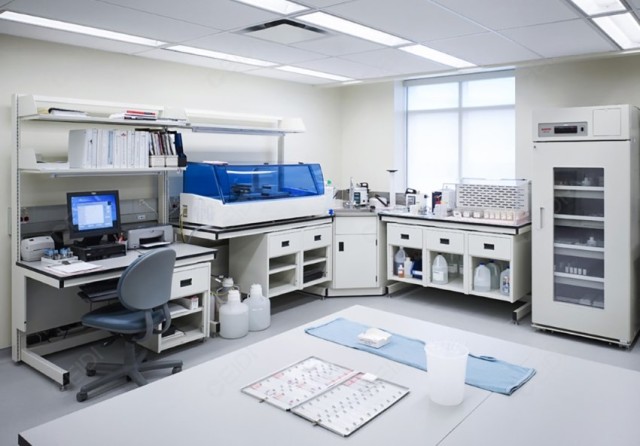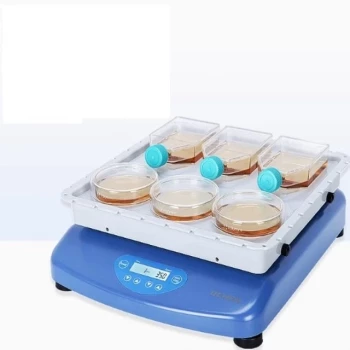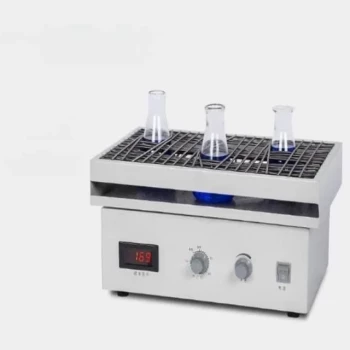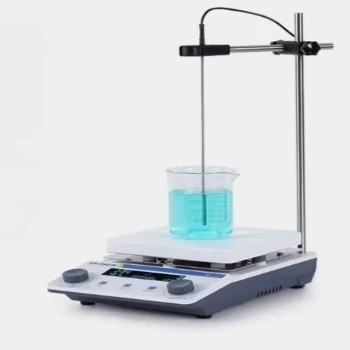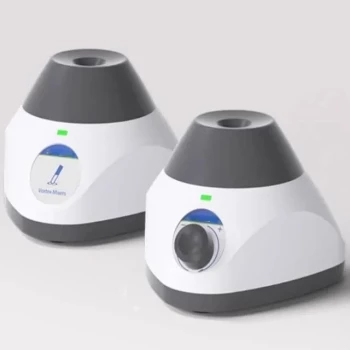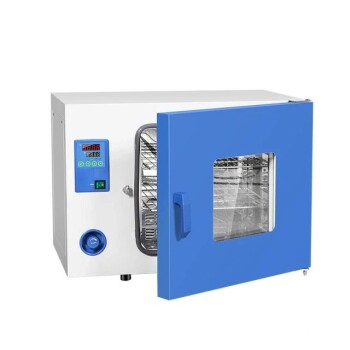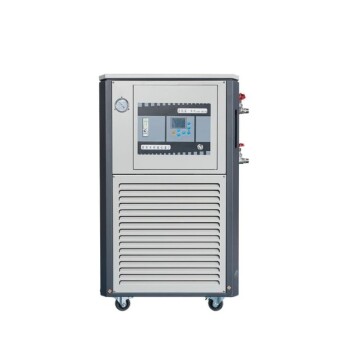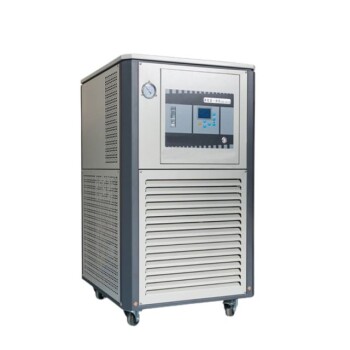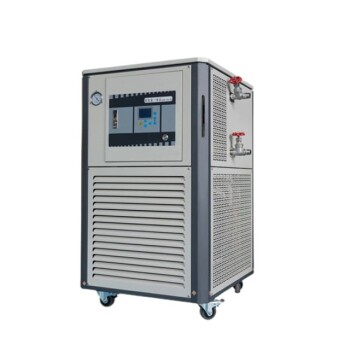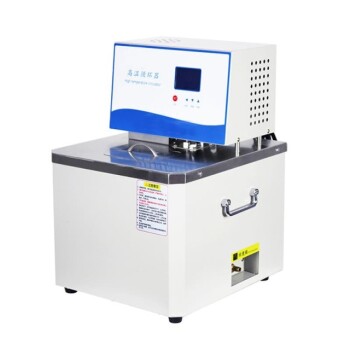Incubatori a temperatura controllata
Incubatore biochimico
L'incubatore biochimico è dotato di un sofisticato sistema di controllo della temperatura a due vie, che consente sia la refrigerazione che il riscaldamento. Questa doppia funzionalità garantisce una regolazione precisa della temperatura, fondamentale per diverse applicazioni di laboratorio. La funzione di controllo della temperatura dell'incubatore consente di mantenere condizioni costanti, rendendolo indispensabile per i test a temperatura costante a bassa temperatura, i test colturali e i test ambientali.

Nei test a temperatura costante a bassa temperatura, l'incubatore biochimico assicura che i campioni rimangano a una temperatura stabile e predeterminata, essenziale per una raccolta e un'analisi accurate dei dati. Nei test colturali, l'incubatore fornisce un ambiente ottimale per la crescita e la proliferazione dei microrganismi, facilitando studi dettagliati sul loro comportamento e sulle loro caratteristiche. Inoltre, nei test ambientali, l'incubatore simula varie condizioni ambientali, aiutando i ricercatori a capire come i diversi fattori influenzino i processi biologici.
La versatilità dell'incubatore biochimico è ulteriormente evidenziata dalla sua applicazione in un'ampia gamma di discipline scientifiche, tra cui microbiologia, biochimica e scienze ambientali. Il suo design robusto e i precisi meccanismi di controllo lo rendono uno strumento essenziale sia per la ricerca accademica che per quella industriale.
Incubatore di muffe
Gli incubatori di muffe sono dispositivi di laboratorio specializzati progettati per favorire la crescita di organismi e piante controllando meticolosamente le condizioni ambientali in uno spazio chiuso. Questi incubatori sono essenziali per varie applicazioni di ricerca biologica e microbiologica, in cui il controllo preciso della temperatura e dell'umidità è fondamentale.

Per favorire condizioni di crescita ottimali, gli incubatori di muffe sono dotati di sistemi avanzati che consentono di regolare con precisione i livelli di temperatura e umidità. Questa precisione è fondamentale per garantire che le colture di muffa possano svilupparsi in un arco di tempo relativamente breve, in genere compreso tra le 4 e le 6 ore. La possibilità di impostare e mantenere queste condizioni specifiche non solo accelera il processo di crescita, ma garantisce anche l'uniformità e la coerenza dei risultati sperimentali.
Inoltre, l'ambiente chiuso fornito dagli incubatori di muffe aiuta a prevenire la contaminazione da parte di fattori esterni, che è fondamentale per mantenere l'integrità dei dati della ricerca. Questo ambiente controllato è particolarmente vantaggioso negli studi che coinvolgono organismi sensibili o che richiedono un ambiente sterile.
In sintesi, gli incubatori di muffe sono strumenti indispensabili in laboratorio, in quanto offrono un mezzo affidabile ed efficiente per coltivare organismi e piante in condizioni esattamente controllate, supportando così un'ampia gamma di indagini scientifiche.
Incubatore ad anidride carbonica
L'incubatore ad anidride carbonica è un dispositivo di laboratorio avanzato progettato specificamente per la coltura in vitro di cellule e tessuti. Riproduce meticolosamente l'ambiente naturale di crescita di cellule/tessuti all'interno degli organismi, facilitando così le condizioni ottimali per la loro proliferazione e il loro studio.

Questo incubatore specializzato mantiene un'atmosfera controllata che comprende non solo livelli precisi di temperatura e umidità, ma anche una concentrazione regolata di CO2. Questo è fondamentale per mantenere l'equilibrio del pH necessario per la vitalità e la crescita delle cellule. Il dispositivo è dotato di sofisticati sensori e sistemi di controllo che assicurano che questi parametri rimangano stabili e all'interno dell'intervallo ottimale per lo specifico tipo di cellula o tessuto in coltura.
Inoltre, l'incubatore ad anidride carbonica viene spesso utilizzato insieme ad altre apparecchiature di laboratorio per creare un sistema completo per la ricerca biologica. Ad esempio, può essere integrato con sistemi di alimentazione automatizzati, tecnologie di imaging e strumenti di registrazione dei dati per fornire un approccio olistico agli studi sulle colture cellulari. Questa integrazione non solo migliora l'efficienza del processo di ricerca, ma garantisce anche l'accuratezza e l'affidabilità dei risultati sperimentali.
In sintesi, l'incubatore ad anidride carbonica si distingue come strumento vitale nell'arsenale delle attrezzature di laboratorio, offrendo una precisione e un controllo senza pari per la coltura di cellule e tessuti in vitro. La sua capacità di simulare le intricate condizioni di un organismo vivente lo rende indispensabile per i ricercatori in campi quali la biotecnologia, la farmacologia e la medicina rigenerativa.
Incubatore elettrico a temperatura costante
L'incubatore elettrico a temperatura costante è una pietra miliare nel campo della ricerca scientifica e della produzione industriale, in particolare in settori come quello medico-sanitario, farmaceutico, biochimico e agricolo. Questa versatile apparecchiatura è stata meticolosamente progettata per facilitare la coltura batterica, la fermentazione e i test a temperatura costante, garantendo condizioni ambientali precise, essenziali per il successo della coltivazione e dell'analisi di varie entità biologiche.

Nel settore medico e sanitario, l'incubatore elettrico a temperatura costante svolge un ruolo fondamentale nella crescita e nel mantenimento delle colture batteriche, indispensabili per i test diagnostici e lo sviluppo dei vaccini. Allo stesso modo, nell'industria farmaceutica, aiuta i processi di fermentazione necessari per la produzione di antibiotici e altri composti medicinali. Anche i settori della biochimica e delle scienze agrarie beneficiano della sua capacità di mantenere temperature stabili, consentendo risultati sperimentali coerenti e affidabili.
L'incubatore elettrico a temperatura costante non è solo un contenitore passivo per i campioni biologici, ma è un partecipante attivo al processo scientifico, che garantisce che le condizioni all'interno siano perfettamente adatte alle esigenze degli organismi studiati. Questa precisione si ottiene grazie a meccanismi avanzati di controllo della temperatura, in grado di mantenere un ambiente costante indipendentemente dalle fluttuazioni esterne, migliorando così la riproducibilità e l'affidabilità dei risultati sperimentali.
Inoltre, la sua applicazione va oltre il semplice mantenimento della temperatura; supporta anche una varietà di esigenze di incubazione specializzate, come quelle che riguardano la luce, l'umidità e persino gli ambienti a gas controllato. Questa adattabilità rende l'incubatore elettrico a temperatura costante uno strumento prezioso nei laboratori moderni, dove la richiesta di risultati accurati e coerenti è fondamentale.
Incubatori specializzati
Incubatore di luce
L'incubatore a luce è un'apparecchiatura di laboratorio specializzata, progettata per la coltivazione e l'allevamento di una vasta gamma di microrganismi, tra cui batteri e muffe. A differenza di altri incubatori che spesso si basano solo sul controllo della temperatura, l'incubatore di luce integra sia il controllo della temperatura che quello della luce, offrendo un ambiente più completo per la crescita microbica.

Il serbatoio interno di un incubatore di luce è in genere costruito in plastica tecnica o in acciaio inossidabile. La scelta dei materiali è fondamentale per diversi motivi:
-
Plastica ingegneristica: Offre un'eccellente resistenza chimica, ideale per contenere varie colture microbiche senza il rischio di reazioni chimiche. Inoltre, offre una superficie liscia, facile da pulire e da mantenere, essenziale per evitare la contaminazione incrociata tra le colture.
-
Acciaio inossidabile: Noto per la sua durata e resistenza alla corrosione, l'acciaio inossidabile garantisce che l'incubatore possa sopportare i rigori di un uso frequente in un laboratorio. Inoltre, facilita un'efficiente distribuzione del calore, fondamentale per mantenere costanti le temperature all'interno dell'incubatore.
Questi materiali non solo assicurano la longevità e la funzionalità dell'incubatrice, ma contribuiscono anche alla sterilità e all'efficienza generale del processo di coltivazione.
Camera climatica artificiale
La camera climatica artificiale è uno strumento di laboratorio versatile, che facilita un'ampia gamma di studi biologici e ambientali. Le sue applicazioni principali includono la germinazione e la coltivazione di piantine dove fornisce condizioni controllate che imitano gli ambienti di crescita naturali, migliorando così il tasso di successo della propagazione delle piante. Inoltre, la camera è utile per coltivazione di tessuti e microrganismi offrendo un ambiente stabile e sterile che supporta la crescita di vari campioni biologici.

Per i ricercatori che studiano insetti e piccoli animali la camera climatica artificiale offre un habitat controllato in grado di simulare diverse condizioni climatiche, favorendo l'osservazione e l'analisi delle risposte comportamentali e fisiologiche. Questa capacità si estende a analisi dell'acqua dove la camera viene utilizzata per determinare la domanda biochimica di ossigeno (BOD), un parametro fondamentale per valutare la qualità dell'acqua.
Al di là di questi usi specifici, la camera climatica artificiale viene impiegata in test climatici artificiali generali dove riproduce varie condizioni ambientali per valutare le prestazioni e la durata di materiali, prodotti e sistemi in diversi scenari climatici. Questa ampia applicabilità la rende una risorsa indispensabile sia per la ricerca accademica che per le applicazioni industriali.
Camera a temperatura e umidità costanti
La camera di prova a temperatura e umidità costanti è uno strumento indispensabile per la scienza e l'ingegneria dei materiali, progettato per simulare un'ampia gamma di condizioni ambientali. Questa camera consente ai ricercatori di valutare le prestazioni dei materiali in diverse condizioni di temperatura e umidità, testando così la loro resistenza a condizioni quali calore, freddo, secchezza e umidità.

Sottoponendo i materiali a stress ambientali controllati, gli scienziati possono prevedere come si comporteranno in scenari reali, il che è fondamentale per settori che vanno dall'automotive all'aerospaziale. Per esempio, un materiale che si comporta bene in condizioni di calore e umidità estremi in laboratorio ha maggiori probabilità di mantenere la sua integrità in climi tropicali o durante l'esposizione prolungata alla luce solare diretta.
La versatilità della camera a temperatura e umidità costanti va oltre i test sui materiali. Viene impiegata anche nella ricerca biologica, dove può simulare le condizioni ambientali necessarie per la crescita e lo studio di microrganismi, piante e altri campioni biologici. Questa capacità la rende una risorsa preziosa in campi come l'agricoltura, la farmaceutica e le scienze ambientali.
In sintesi, la camera di prova a temperatura e umidità costanti non è una semplice apparecchiatura, ma uno strumento sofisticato che facilita le attività critiche di ricerca e sviluppo in diverse discipline scientifiche.
Incubatore microbico
L'incubatore microbico è un dispositivo specializzato, di tipo a scatola, progettato per coltivare una vasta gamma di microrganismi, tra cui batteri, muffe e cellule vegetali/animali. Questo strumento versatile è essenziale nella ricerca biologica per simulare le condizioni di crescita ottimali richieste da questi organismi.

I principali parametri ambientali, come temperatura, umidità, luce, livelli di anidride carbonica e pH, sono controllati meticolosamente all'interno dell'incubatore. Questa precisa regolazione garantisce che l'ambiente interno imiti l'habitat naturale degli organismi studiati, favorendone la crescita e la riproduzione. Ad esempio, i batteri prosperano tipicamente in ambienti caldi e umidi, mentre le muffe possono richiedere specifici livelli di umidità e condizioni di luce per proliferare.
La capacità dell'incubatore microbico di mantenere un ambiente stabile e controllato è fondamentale per gli esperimenti che richiedono risultati costanti. Che si tratti di studiare gli effetti della temperatura sulla crescita batterica o l'impatto dei livelli di anidride carbonica sulle colture di cellule vegetali, l'incubatore fornisce una piattaforma affidabile per tali indagini.
In sintesi, l'incubatore microbico rappresenta una pietra miliare nei laboratori, offrendo ai ricercatori i mezzi per coltivare e studiare un'ampia gamma di microrganismi in condizioni controllate con precisione.
Incubatore anaerobico
L'incubatore anaerobico è progettato specificamente per la coltivazione di organismi anaerobici, ovvero microrganismi che prosperano in ambienti privi di ossigeno. Questi incubatori creano un ambiente controllato e privo di ossigeno rimuovendo o riducendo sistematicamente i livelli di ossigeno all'interno della camera. Ciò si ottiene con vari metodi, come l'uso di miscele di gas che escludono l'ossigeno o l'uso di sistemi di vuoto per rimuovere l'ossigeno dalla camera.

Questi incubatori non solo garantiscono condizioni anaerobiche rigorose, ma mantengono anche una temperatura costante, fondamentale per la crescita e la sopravvivenza degli organismi anaerobici. Il sistema di controllo della temperatura assicura che l'ambiente interno rimanga stabile, imitando l'habitat naturale di questi organismi. Questa doppia funzionalità - condizioni anaerobiche e temperatura costante - rende gli incubatori anaerobici indispensabili nei laboratori in cui lo studio dei batteri anaerobici e di altri microrganismi è una priorità.
Il design di un incubatore anaerobico è sistematico e scientifico, con un'area di lavoro ben organizzata che consente un controllo e un monitoraggio precisi delle condizioni all'interno della camera. Questo include sensori e sistemi di controllo avanzati che monitorano e regolano continuamente i livelli di ossigeno e temperatura, assicurando che le condizioni rimangano ottimali per gli organismi coltivati. Il layout sistematico facilita inoltre la facilità d'uso, consentendo ai ricercatori di eseguire gli esperimenti in modo efficiente e con il minimo disturbo al delicato ambiente anaerobico.
Incubatore oscillante
Un incubatore oscillante è un'apparecchiatura di laboratorio specializzata progettata per la coltivazione di campioni biologici. A differenza degli incubatori tradizionali che mantengono un ambiente statico, gli incubatori oscillanti incorporano un leggero movimento di oscillazione per simulare le condizioni naturali, come il movimento dell'acqua in un habitat naturale. Questo movimento è fondamentale per la crescita e lo sviluppo di alcuni tipi di cellule, in particolare quelle che necessitano di agitazione per facilitare la distribuzione dei nutrienti e la rimozione dei rifiuti.

La funzione principale di un incubatore oscillante è quella di fornire un ambiente controllato che supporti la crescita dei campioni biologici. Ciò include il mantenimento di livelli precisi di temperatura, umidità e CO2, essenziali per la vitalità e la proliferazione delle cellule. La funzione di oscillazione aggiunge un ulteriore livello di complessità al processo di incubazione, garantendo che i campioni non solo siano mantenuti in condizioni ottimali, ma anche sottoposti a un movimento delicato e costante.
Gli incubatori oscillanti sono particolarmente utili in campi come la microbiologia, la biologia cellulare e la biotecnologia. Sono spesso utilizzati per la coltivazione di batteri, funghi e altri microrganismi che beneficiano o richiedono un ambiente dinamico. La possibilità di controllare la frequenza e l'ampiezza dell'oscillazione consente ai ricercatori di adattare le condizioni di incubazione alle esigenze specifiche dei loro campioni, migliorando così l'accuratezza e l'affidabilità dei loro esperimenti.
In sintesi, un incubatore oscillante non è solo un fornitore di ambienti statici, ma un sistema dinamico che simula le condizioni naturali per favorire la crescita dei campioni biologici. Le sue caratteristiche uniche lo rendono uno strumento indispensabile in vari contesti di laboratorio, in particolare quando l'interazione tra le cellule e il loro ambiente gioca un ruolo critico nei risultati della ricerca.
Prodotti correlati
- Agitatore orbitale oscillante da laboratorio
- Agitatore meccanico orizzontale multifunzionale da laboratorio a bassa velocità regolabile per laboratorio
- Agitatore magnetico riscaldato a temperatura costante per piccoli laboratori e agitatore
- Agitatore rotante a disco da laboratorio per un'efficiente miscelazione e omogeneizzazione dei campioni
- Autoclave a Vapore ad Alta Pressione da Laboratorio Verticale per Reparto di Laboratorio
Articoli correlati
- L'arte dello spegnimento: ingegnerizzare l'affidabilità nelle celle elettrochimiche
- Selezione delle attrezzature di pressatura isostatica per lo stampaggio ad alta densità
- Apparecchiature di miscelazione di base in laboratorio
- Attrezzatura di base per centrifuga da laboratorio
- Guida completa alla pressatura isostatica: Tipi, processi e caratteristiche(3)
